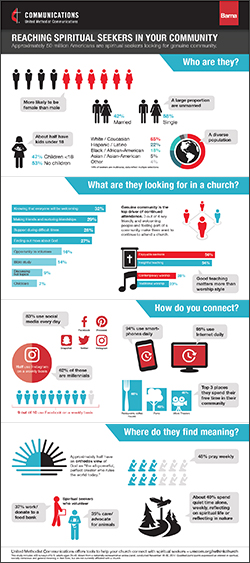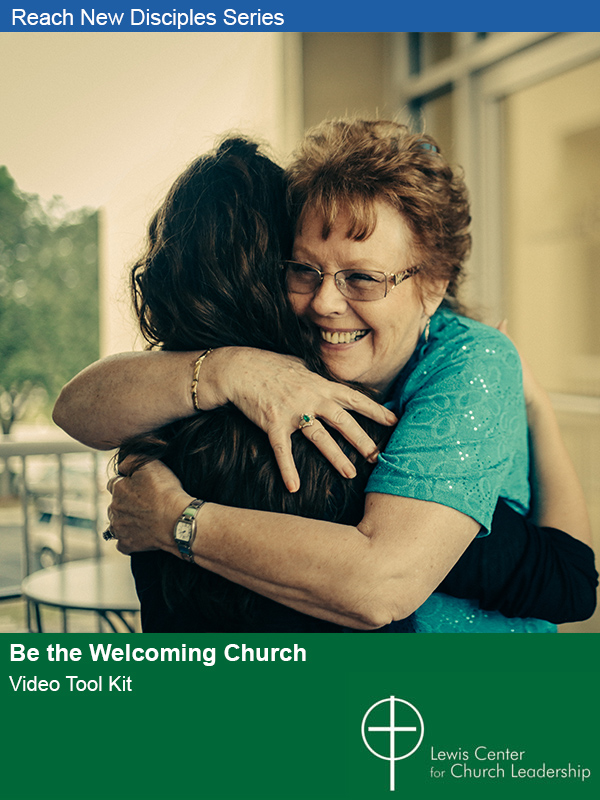A recent study among spiritual seekers aged 25–49 suggests they have a strong desire for genuine community. Knowing everyone will be welcomed, making friends and nurturing friendships, and support during difficult times were the top motivating factors in considering a church.
A survey of spiritual “seekers” released last year found that the top motivators for considering a church are knowing that everyone will be welcomed (32%), making friends and nurturing friendships (29%), support during difficult times (28%), and learning more about God (27%). Less motivating are opportunities for Bible study, volunteer opportunities, discussions of issues and topics, and the provision of childcare.
“The findings point to a desire for genuine community,” said Dan Krause, General Secretary, United Methodist Communications. “About three-quarters of those who might visit a church said that having friendly and welcoming people might cause them to continue attending.”
Among survey respondents, women were more interested in being welcomed into a church and in relationships that might develop, while men were relatively more interested in knowledge about God. About one in three said they do not believe church has anything to offer them. Enjoyable sermons and insightful teaching rank high as attractive church characteristics among both men and women, and these characteristics were twice as likely to be named as motivators than the worship experience.
How do spiritual seekers spend their time?
What do spiritual seekers spend their time doing? Two-thirds spend free time at restaurants and coffee houses, especially high-income earners and those without children, while parents are more often found at parks. Prayer is the most common spiritual activity, practiced daily or weekly by 48 percent of respondents, followed by spending quiet time alone reflecting on spiritual life and spending time reflecting in nature. More than 90 percent use smartphones and internet daily, while 83 percent use social media every day and about half watch TV or listen to radio.
“This data provides insights into how and where churches can connect with people who may be looking for a faith community where they can belong,” said Krause.
About the survey
The survey, conducted by the Barna Group on behalf of United Methodist Communications, included people aged 25-49 who consider themselves spiritual, socially conscious, and seeking meaning in their lives, but who are not affiliated with a church. It was conducted in November 2017 and included 606 interviews with a nationally representative sample of U.S. adults drawn from an online panel. Individuals on the panel were screened to identify people who met criteria identifying them as a “seeker.”
The results of the survey were not markedly different from a similar survey conducted in 2015, although the definition of a “seeker” was adjusted to be somewhat more targeted. As a result, respondents in the 2017 survey were more likely to be interested in spiritual matters, yet less likely to be immediately open to attending church.
This article is drawn from a press release issued by the United Methodist Communications’ Office of Public Information. Used by permission.
Related Resources
- NEW! Be the Welcoming Church Video Tool Kit
- 50 Ways to Welcome New People, a free resource from the Lewis Center
- The New Welcome Video Tool Kit








